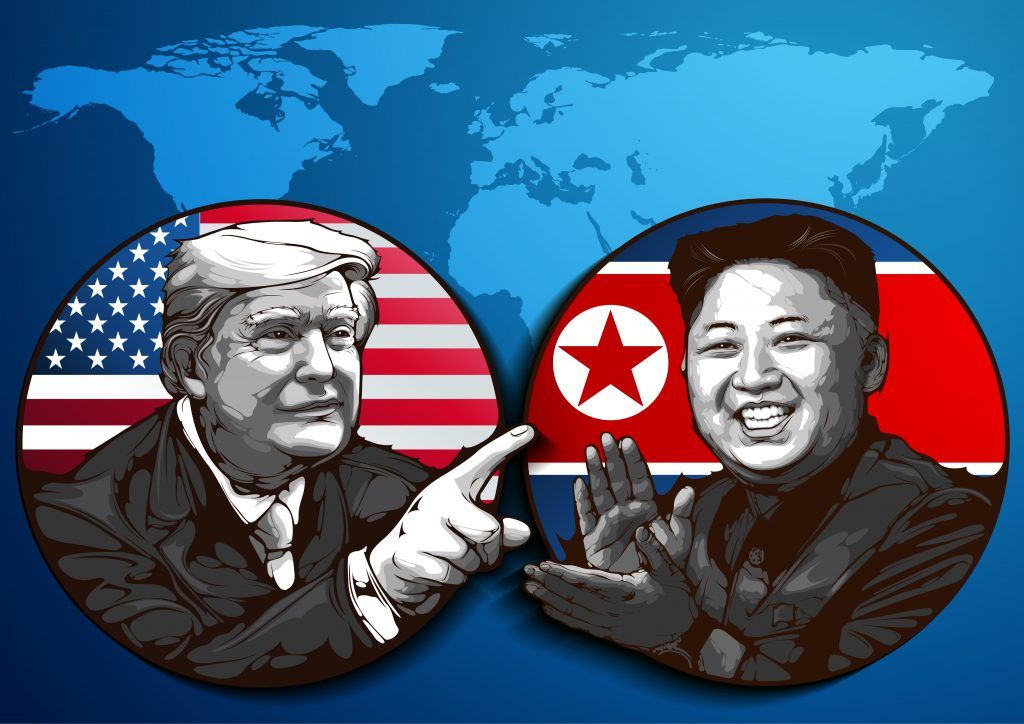How to make progress with North Korea now
By Robert J. Goldston | September 21, 2018

In early 2017, the Trump administration could have taken up a Chinese- and Russian-backed proposal to suspend United States-South Korean joint military exercises, in exchange for suspension of North Korean nuclear and missile tests. At the time, South Korea was signaling that it would support this proposal, made before North Korea had tested intercontinental ballistic missiles (ICBMs) capable of reaching most of the United States. It also preceded North Korea’s test of an advanced nuclear explosive some 10 times more powerful than the atomic bombs the United States used against Japan in World War II.
Instead of making that deal, the Trump administration opted for “fire and fury” rhetoric and a policy of “maximum pressure.”
The Singapore Summit in June, however, effectively put just such a suspension-for-suspension agreement in place. A little late, but much better than never.
Now, in the just-finished inter-Korean summit, North Korea has offered to shut down its nuclear facility in Yongbyon in exchange for reciprocal measures by the United States—measures that President Trump and Chairman Kim supposedly discussed in Singapore. So what should the United States do? First of all, Kim Jong-un is not suicidal enough to give the United States the GPS coordinates of all of his nuclear and missile facilities, so Washington should not keep demanding that Kim take such a risky step.
Kim has, however, offered to stop producing nuclear weapons material at the known facilities in Yongbyon. This would not halt North Korea’s production of highly enriched uranium for weapons; Western intelligence agencies have long suspected that North Korea has, in addition to its enrichment facilities at Yongbyon, at least one secret location at which weapon-grade uranium can be produced. Still, it would slow the uranium enrichment program significantly. It would also likely stop the North’s production of plutonium, since there are probably no North Korean reactors outside of the Yongbyon complex. By the same token, a Yongbyon shutdown would also likely begin the depletion of North Korea’s supply of tritium gas, a component of advanced nuclear explosives. Tritium is produced for weapons purposes in fission reactors, and decays at a rate of five percent per year. If Kim is asking only for a formal declaration of the end of the Korean War in exchange for shuttering Yongbyon, this is a bargain, and the United States should take it. If he wants associated security guarantees, why not? The United States is, hopefully, not suicidal enough to attack a nuclear-armed North Korea.
And once fissile material production at Yongbyon has been halted, the United States would then be positioned to negotiate a next step—say access to all of North Korea’s facilities capable of producing materials for nuclear weapons, allowing International Atomic Energy Agency inspectors to verify that the North is producing nuclear materials only for peaceful purposes. From America’s point of view, this would be a fine trade for a peace treaty and major infrastructure investments, if these are what North Korea wants.
Reductions in North Korea’s stockpile of nuclear weapons material and nuclear warheads represent a third stage, and will both be harder to negotiate, and also harder to verify (but not impossible; see this recent piece in Science magazine by my Princeton colleagues Alex Glaser and Zia Mian). The United States needs to succeed in these negotiations and verifications, and so make North Korea, like South Africa, an example of denuclearization that improves a nation’s circumstances. A patient, mutual, step-by-step path—and a willingness by the United States to consider proposals coming from North Korea that are in North Korea’s interests as well as our own—is the only route to such an outcome.
Together, we make the world safer.
The Bulletin elevates expert voices above the noise. But as an independent nonprofit organization, our operations depend on the support of readers like you. Help us continue to deliver quality journalism that holds leaders accountable. Your support of our work at any level is important. In return, we promise our coverage will be understandable, influential, vigilant, solution-oriented, and fair-minded. Together we can make a difference.
Topics: Analysis, Nuclear Risk, Nuclear Weapons















Need complete US withdrawal of US troops in exchange for denuking. There is no free lunch in international relations, reciprocity is key.